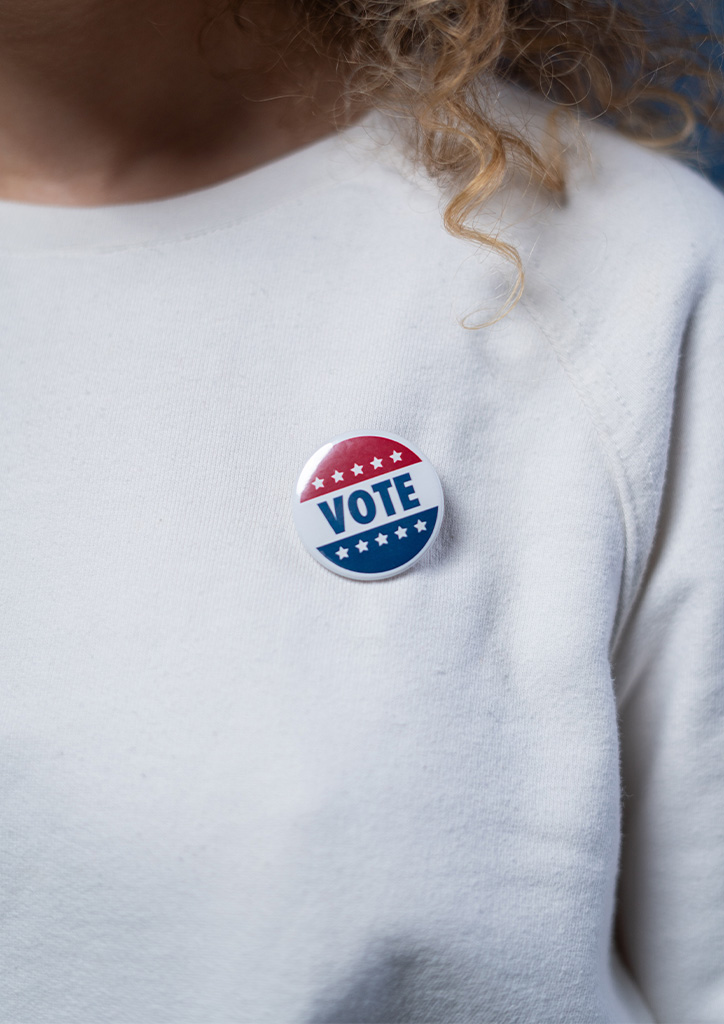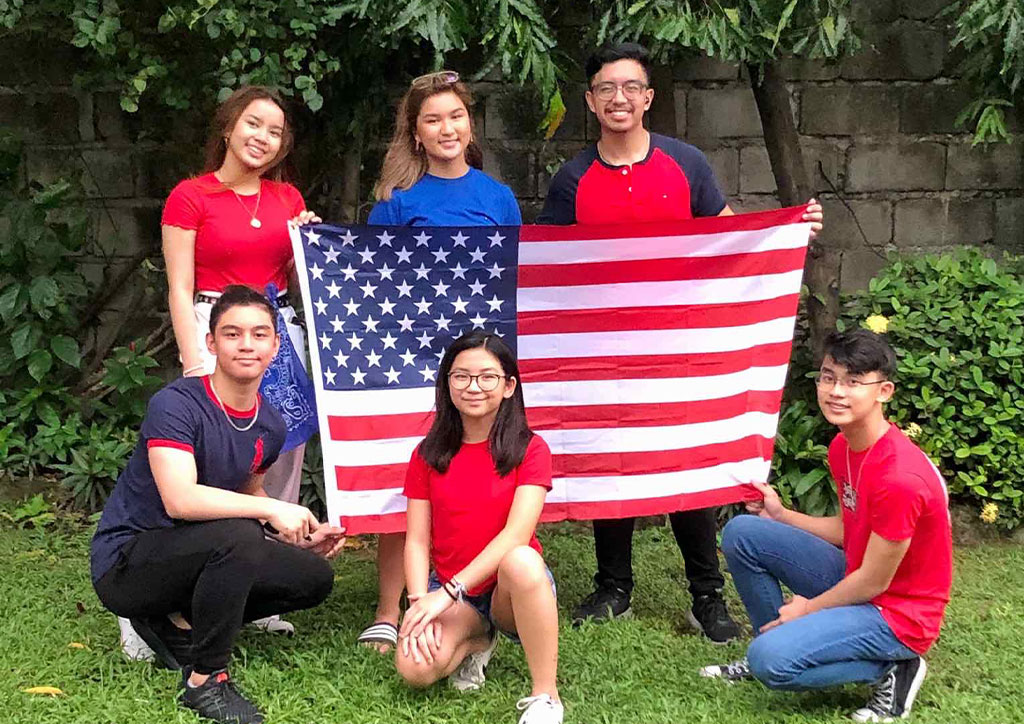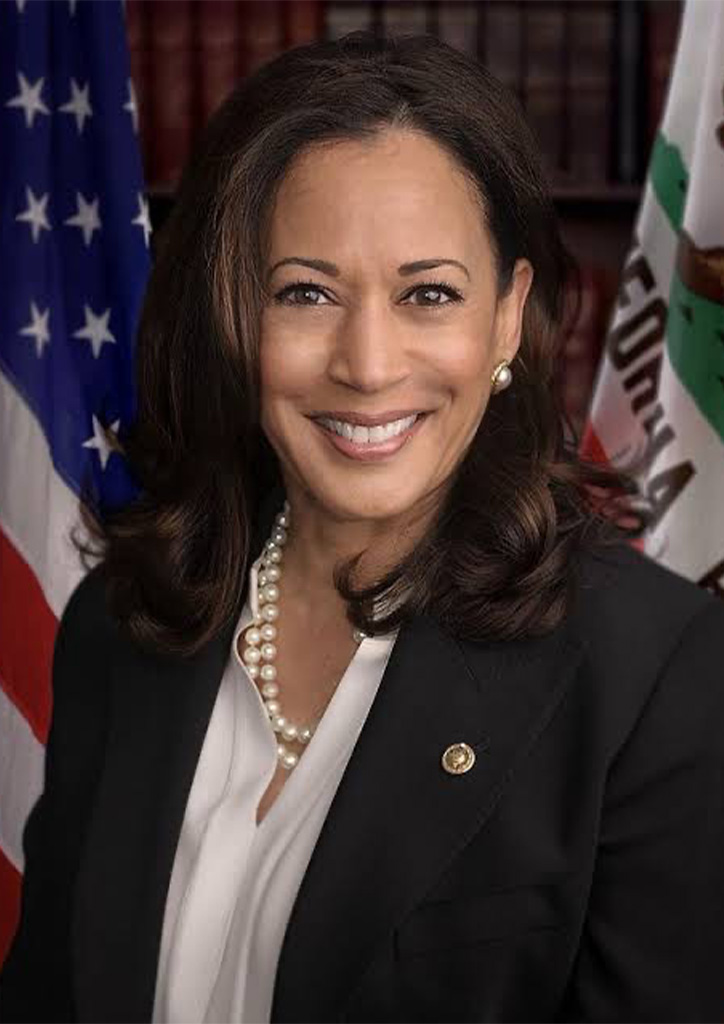As one of the largest immigrant groups in the US, Filipinos have a lot riding on in the results of the US elections.
Related: Filipina influencers are the subject of a NY Fashion Week Critic’s video
When asked to write an article about the US elections as a Filipino-American, a hundred and one things came to my mind. But as the smoke started to clear, what remained discernible was how monumental this time is for all women, for people of color, and for everyone who is biracial and bicultural.
In the spirit of keeping it real, I have a confession to make: I have never been big on politics, nor did I ever bother with elections. However, that quickly changed when my kids started asking me if I was a Republican or Democrat, and why I wasn’t voting. Having six very informed children, between the ages 11 to 20 years old, and hearing them discuss and debate about climate change, education, racism, same sex marriage, and what it means to be liberal and conservative was a revelation. They were so invested in the outcome of this election, routinely monitoring updates from several news sources. In fact, it was through their rousing shrieks and boisterous laughter that I learned about the election results past midnight on November 8. The internet went berserk shortly after and the rest is history. But, seeing everything through their eyes is a very humbling wake up call.

The Biracial Experience
As a kid growing up in Chicago in the late ’80s-early ’90s and being educated in the Chicago Public School system, I was exposed to a myriad of racial backgrounds and ethnicities. Today, I realize how fortunate I was to have had the opportunity to make friends who were African-American, Puerto Rican, Ecuadorian, Greek, Israeli, South Korean, Polish, and more. I understood the importance of being “color blind”—and that yes, we are all created equal. Coincidentally, it was also then when I learned about the ugly reality called racial inequality.
Much of who I am today can be attributed to two things: being surrounded by diverse racial backgrounds at such a young age and being influenced by teachers who happen to be strong, educated Black women—Mrs. Pope and Mrs. Prince, to name a few. Aside from teaching me Shakespeare and Dickens in junior high, College Algebra and Chemistry in the seventh grade, World History and U.S. constitution in the eighth grade, they also showed me that being different is to be embraced, not feared, and that kindness goes a long way.
Racism And Fear
There was a popular clothing brand in the early 90s that I loved called Cross Colours. Paper magazine describes it as “a brand that used fashion as a form of protest. With its bright dynamic designs, social messaging and hip-hop influence, the brand was created to unite Black and brown communities during a time of national unrest, fighting racial injustice, police brutality and the war on drugs.” The iconic streetwear label made a timely and poignant comeback 20 years later as a response to the current growing racial injustice towards African Americans and immigrants.
Unfortunately, racism has always existed in the US and recently, systemic racism became so widespread. After all the progress the US made in past decades towards racial equality, there are now systems in place that affect every facet of life for people of color. Because of the persistent racial inequality in America in recent years, I feared for my children and their future. What was once a place of refuge and hope has become profusely consumed with anger and violence coming from deep-seated racism. How could I ever allow my non-White, Asian-American children to go back to the U.S. for college and have peace of mind that they will be safe?

Growing Up Fil-Am
Biculturalism is another issue that definitely poses challenges. As a Filipino-American, I’ve found that I was always too Filipino for the U.S. and too American for the Philippines. Do Fil-Ams experience racism in America? Absolutely. And here in the Philippines, remarks made about people who are bicultural are usually passive aggressive and can be quite snide. Statements like, “Hey, you’re not in America,” “Your kids should learn how to speak Filipino because they live here in the Philippines,” and my all-time favorite, “You should tone it down a little, because you are not dealing with Americans and you come off too strong,” are in fact, discriminatory and offensive.
My kids are no different. Born in the US and having spent most of their lives here in the Philippines, they are also being raised in a bicultural household. By definition, “they have layered inherited and socially constructed identities,” and their cultural authenticities are always questioned—by other people and more so, by themselves. As a family, we make it a point to have conversations about their cultural identity because this is how they will understand that being different and not fitting into a specific box or category is not something they should be ashamed of. In fact, it’s something I want them to be aware of and proud of.
Vice President elect Kamala Harris represents progressive racial and gender politics. She isn’t just an African American woman or an Indian American woman—she is both. Her Tamil Brahmin, Afro Caribbean and American cultures give a nod to people who struggle with being biracial and bicultural. Seeing her stand on the global stage is a representation that transcends all kinds of stereotypes, and she is the blueprint to all kinds of possibilities for so many people.

A New Future
To my kids, the outcome of the US elections gave them a reason to look forward to their future. To them, it was the end of an era of hatred, divisiveness, and violence. More than President-elect Joe Biden, they are really looking forward to what Dr. Jill Biden will bring to the table as FLOTUS, and all the progress she will make for education. My three middle kids who are in high school have actually been planning where they will go for college, because now, they see it as an actual possibility—and honestly, so do I.
And of course, Kamala Harris getting elected as the Vice President of the world’s most powerful country and shattering that proverbial glass ceiling is not only a manifestation of the dreams of women all over the world who have lived through prejudices, she is the message every mother wants to send their kids, regardless of gender or color, biracial and bicultural alike, whatever nationality they may be. It can be done.
As my favorite Cross Colours shirt from eighth grade said, Love See No Color. And that’s what we all need in order to heal—set our differences aside, love one another, and move forward. It’s a new day, and there is so much work to be done.







